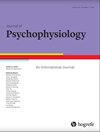Electrophysiological Evidence of Enhanced Auditory Retrieval in Musically Trained Children
IF 0.9
4区 心理学
Q4 NEUROSCIENCES
引用次数: 1
Abstract
Abstract. Musical practice enhances auditory processing in children as related to pitch perception or tonal discrimination. The purpose of this study was to examine whether these benefits also occur in auditory working memory by influencing its neural substrates. Two groups of children aged between 7 and 11 years old were compared using an auditory retrieval task with three conditions: frequency retrieval, duration retrieval, and control. Musician children had weekly private violin or cello lessons for at least 14 months, whereas non-musician children had no musical training. Results showed that musicians’ scores on the Gordon’s Primary Measure of Music Audiation test were significantly higher than non-musicians’ scores in the rhythm and tone conditions. On memory tasks, musicians outperformed non-musicians in frequency retrieval but not in duration retrieval. Differences in retrieval performance were associated with a larger P200-like waveform over frontal sites in musicians and a larger N400-like waveform over centro-parietal sites in non-musicians. A source current density analysis revealed differences in frontal activities between musicians and non-musicians, suggesting that musical training influenced the neural mechanisms supporting auditory retrieval in children. These results are in agreement with previous studies that showed a better auditory memory in musicians. Furthermore, they suggest that in children, the effect of musical training can be strong enough to positively influence higher-order auditory memory processes such as active retrieval, as well as their neural correlates.音乐训练儿童听觉恢复增强的电生理学证据
摘要音乐练习增强了儿童的听觉处理,如与音高感知或音调辨别有关。本研究的目的是检查这些好处是否也发生在听觉工作记忆通过影响其神经基质。对两组年龄在7 ~ 11岁的儿童进行了频率检索、持续时间检索和控制三种条件下的听觉检索任务比较。音乐家的孩子每周上私人小提琴或大提琴课至少14个月,而非音乐家的孩子没有音乐训练。结果表明,音乐家在戈登初级音乐听力测试中的得分明显高于非音乐家在节奏和音调条件下的得分。在记忆任务中,音乐家在频率检索方面优于非音乐家,但在持续时间检索方面优于非音乐家。检索性能的差异与音乐家额叶部位的p200样波形较大和非音乐家中央顶叶部位的n400样波形较大有关。源电流密度分析揭示了音乐家和非音乐家额叶活动的差异,这表明音乐训练影响了儿童支持听觉检索的神经机制。这些结果与之前的研究结果一致,即音乐家的听觉记忆力更好。此外,他们认为,在儿童中,音乐训练的效果足够强,可以积极影响高阶听觉记忆过程,如主动检索,以及它们的神经相关过程。
本文章由计算机程序翻译,如有差异,请以英文原文为准。
求助全文
约1分钟内获得全文
求助全文
来源期刊

Journal of Psychophysiology
医学-神经科学
CiteScore
2.60
自引率
7.70%
发文量
25
审稿时长
>12 weeks
期刊介绍:
The Journal of Psychophysiology is an international periodical that presents original research in all fields employing psychophysiological measures on human subjects. Contributions are published from psychology, physiology, clinical psychology, psychiatry, neurosciences, and pharmacology. Communications on new psychophysiological methods are presented as well. Space is also allocated for letters to the editor and book reviews. Occasional special issues are devoted to important current issues in psychophysiology.
 求助内容:
求助内容: 应助结果提醒方式:
应助结果提醒方式:


